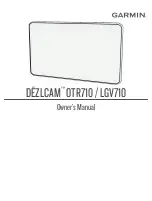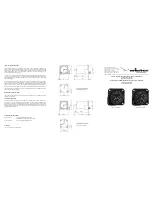
44
GPSMAP 2206/2210 Owner’s Manual
M
AIN
M
ENU
>
T
IDE
T
AB
Tide Tab
Use the Tide tab to view tide and current information. The Tide tab contains two
sub tabs: Tide and Current.
Tide Sub Tab
The Tide sub tab contains a graphical chart that shows Tide Station information
in a 24-hour span starting at midnight. You can choose from different dates and
more than 3,000 Tide Stations around the U.S.A. coastline, Alaska, Hawaii,
western Canada, and several of the Caribbean islands. The top of the Tide sub tab
shows the Tide Station and the date. The bottom of the Tide sub tab shows the
distance and bearing from your location.
The bottom of the Tide chart shows a 24-hour block of local time for your
location. Daylight (yellow bar) and nighttime (blue bar) at the Tide Station are
shown across the time scale, with the time progressing from left to right (sunrise
and sunset information might not be available for some Tide Stations). The solid,
light vertical lines are in 4-hour increments, and the light, dotted vertical lines are
in 1-hour increments. A solid, vertical line (with the local time at the top) indicates
the tide height corresponding to the time shown in the local time box.
Night
Low tide curve
Event times
Min. level
Max. level
Local time
Day
High tide
curve
Time bar
Current tide
height bar
Current
tide
height
The Tide curve is shown as a shaded area, where higher tides are taller (blue) and
lower tides are shorter (red). The solid, horizontal line indicates the tide height.
The figure to the left of the line shows the present tide level. The Mean Lower
Low Water (MLLW) appears as a solid, horizontal line near the bottom of the chart
(this line appears only if the tide height range is zero or below). The numbers on
the top and bottom of the left side indicate the maximum and minimum levels.
The four data fields below the chart indicate event times and levels at which the
tide changes, starting in the upper-left field, going downward, then to the upper-
right, and down again. When comparing with other tide tables, verify that the
depth unit’s value is the same for both sources. The bottom of the chart shows the
amount of time (in hours and minutes) until the next low tide and high tide.















































